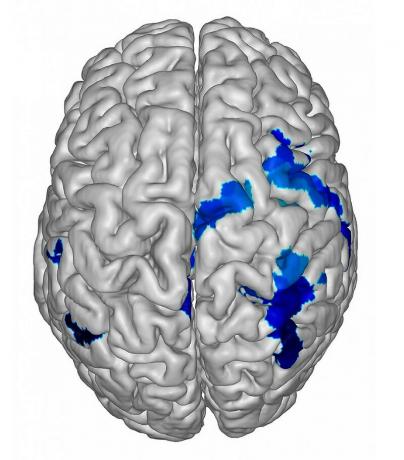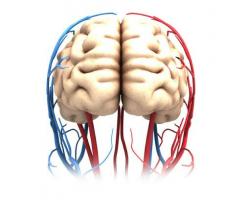Neuro rights: what are they, types, and legal implications
The evolution of neuroscience is unstoppable, as is neurotechnology in parallel. It is a matter of a few decades before electronic devices are invented capable of decoding the information in our brain and entering the depths of our minds.
The use of a technology capable of such power is a double-edged sword because, although it will mean great advances in fields such as criminology, discovering if a suspect is the author of a crime, it also raises serious ethical questions such as being able to modify our memories or manipulate our taking of decisions.
It is for this reason that there are not a few neuroscientists who in recent years have been warning about the need to establish ethical limits in the use of technology capable of influencing our mind, coming into play what has been called the neuro-rights. Next we will see what they are and their great importance.
- Related article: "Neurosciences: the new way of understanding the human mind"
What are neuro-rights and why are they important?
Advances in the neurosciences, disciplines that study the functioning of the brain and seek the biological foundations of human behavior, have raised some concern about the use that could be made of technologies that benefit from their findings. Neurotechnology, combined with artificial intelligence, has the potential to influence society in profound ways according to neuro-rights activists, a very dangerous tool to be used irresponsibly and for commercial.
As a result of this concern, neuro-rights have been raised, a new international human rights legal framework focused on protecting the human brain and its individuality from irresponsible use of new technologies. Although it sounds like science fiction, we are getting closer to knowing through an X-ray or electrodes what he thinks, feels, believes and thinks a person, an extremely dangerous possibility if it falls into the wrong hands, which is why these rights are so necessary neurotechnological.
- You may be interested in: "Parts of the human brain (and functions)"
BRAIN Project and NeuroRights Initiative
One of the projects that is making the most progress in mapping the brain and the analysis of behavior and its neurological foundations is the BRAIN INITIATIVE (Brain Research Through Advancing Innovative Neurotechnologies), based in the United States. This project was initiated by former US President Barack Obama in 2013, endowing it with a budget of about 4.5 billion dollars.
At the time, it already gave enough to talk about, since it was a powerful program with which to track mental activity in a meticulous way by developing tools with which to know what a person thinks or feels from their traceable neurological activity. His goal was, in fact, to get a dynamic picture of the brain in action and better understand how we think, learn and remember.
After a few years the discoveries made by those involved in this project and the information that has been collected is so great and valuable that even neuroscientists themselves warn of the great need to establish a series of universal rights that guarantee the protection of individuality and privacy mental. If some neuro-rights with international validity are not approved, there is a risk that neurotechnologies will be very badly used.
One of the defenders of the need to establish these human rights is the Spanish neurobiologist Rafael Yuste, director of the Center for Neurotechnology at Columbia University (USA). Yuste is one of the main promoters of the BRAIN project, but also of the defense of neuro-rights and therefore also leads the NeuroRights Initiative, which is in fact focused on this task.

Neuroscientists are human beings well aware of the ethical implications of their advances, which is why they are the first to want neuro-rights to be recognized at the international. His neuroscientific advances aim to improve people's lives, discovering what is behind diseases and disorders established in the brain such as Alzheimer's, Parkinson's, epilepsy, depression, anxiety or schizophrenia. Knowing how they occur in the brain will be possible to find a definitive cure.
But knowledge of the brain can also lead to interests that go beyond improving the quality of life of those with neurological diseases. Companies could use the most sophisticated neurosciences to manipulate individuals and, changing their desires and interests entering their minds, make them buy their products. It can also be a tool used by corrupt governments and totalitarian regimes, interested in identifying citizens who do not agree with their ideas, violating their mental privacy and arresting them for having certain thoughts.
- Related article: "The 5 limits that should not be broken in psychotherapy"
What are the neuro-rights?
Taking into account the ethical implications and potential risks posed by advances in neuroscience, both Neuroscientists as human rights activists demand that the big organisms include five neuro-rights fundamental.
In fact, it is campaigning for these rights to be included in the Universal Declaration of Human Rights of the UN since, of achieved, would have a real link, forcing governments, authorities, private sector and citizens to respect them were in the country where were.
For now, the five fundamental neuro-rights raised are as follows.
1. Right to personal identity
The right to personal identity calls for the imposition of limits that prohibit technologies from altering the sense of self. This right seeks to protect the individuality and personal autonomy of individuals because, when neurotechnology can connect the people with social networks, you could run the risk of blurring the line between the person's conscience and technological contributions external.
- You may be interested in: "Personal and social identity"
2. Right to free will
The right to free will guarantees that people can make decisions freely, with their own will and without being manipulated by technology. This right provides for the possibility that, if our brain is connected through brain activity readers to a computer, you will not be free to make decisions or it could even be the case that someone invades your brain, hacking our mind.
- Related article: "Is there free will?"
3. Right to mental privacy
The neuro-right to mental privacy intends to prevent any data obtained from the analysis and measurement of neural activity from being used without the consent of the person. Added to this, it requires strict regulation of any interaction and transaction of commercial use of this data.
- You may be interested in: "Can the psychologist tell others what you explain?"
4. Right to equal access to neurocognition
Behind this neuro-right, what is requested is that guidelines and guidelines be determined that define and regulate the application of all technology that allows improving brain activity. The objective of this right is to ensure that this cognitive enhancement is accessible to everyone, in an equitable manner and that it is not reserved for a small, favored and wealthy sector of society.
- Related article: "Cognition: definition, main processes and operation"
5. Right to protection against bias and discrimination
This right requests that the knowledge of neuroscience does not establish discrimination and distinctions by race, ethnicity, sex, sexual orientation, creed, political opinion, national or social origin, birth, economic position or any other condition.
- You may be interested in: "Cognitive biases: discovering an interesting psychological effect"
Activism and legislation for the protection of our mind
The community of neuro-rights sensitive neuroscientists seeks to ensure that our minds are not manipulated and that our privacy is respected. Our thoughts, opinions, beliefs, emotions and other aspects that are housed in our mind and are hidden from the public eye should continue to be hidden although technologies are developed capable of taking them out with a mere x-ray, electrodes or neuroimaging.
With them, what is intended is that all neuroscientific advances are directed towards achieving a better society, being carried out for the common good, and that it does not lead to situations of greater inequality or social crisis.
With recognized neuro-rights, the work of decoding the neural networks would force to take into account the ethical and legal component of investigating with the brain, just like nowadays, technological advances in mobiles and other devices are forced to extreme the current personal data security regulations.
As the neurosciences unravel the mysteries of the brain, the confidentiality and protection of data that may be found in the mind must be guaranteed. The objective would be to prevent the information available about our brain from being used for purposes outside the general interest.
For now one of the countries that has made the most progress in terms of neuro-rights is Chile, which presented a draft reform of the Constitution to recognize these rights in it and becoming the first state to pass specific legislation for this purpose.
Important steps have also been taken in the European Union, announcing in 2019 the creation of a committee on Artificial Intelligence and that it is exploring the viability of a legal framework on its transparency, accountability and security, managed by the European Council on Human Rights.

